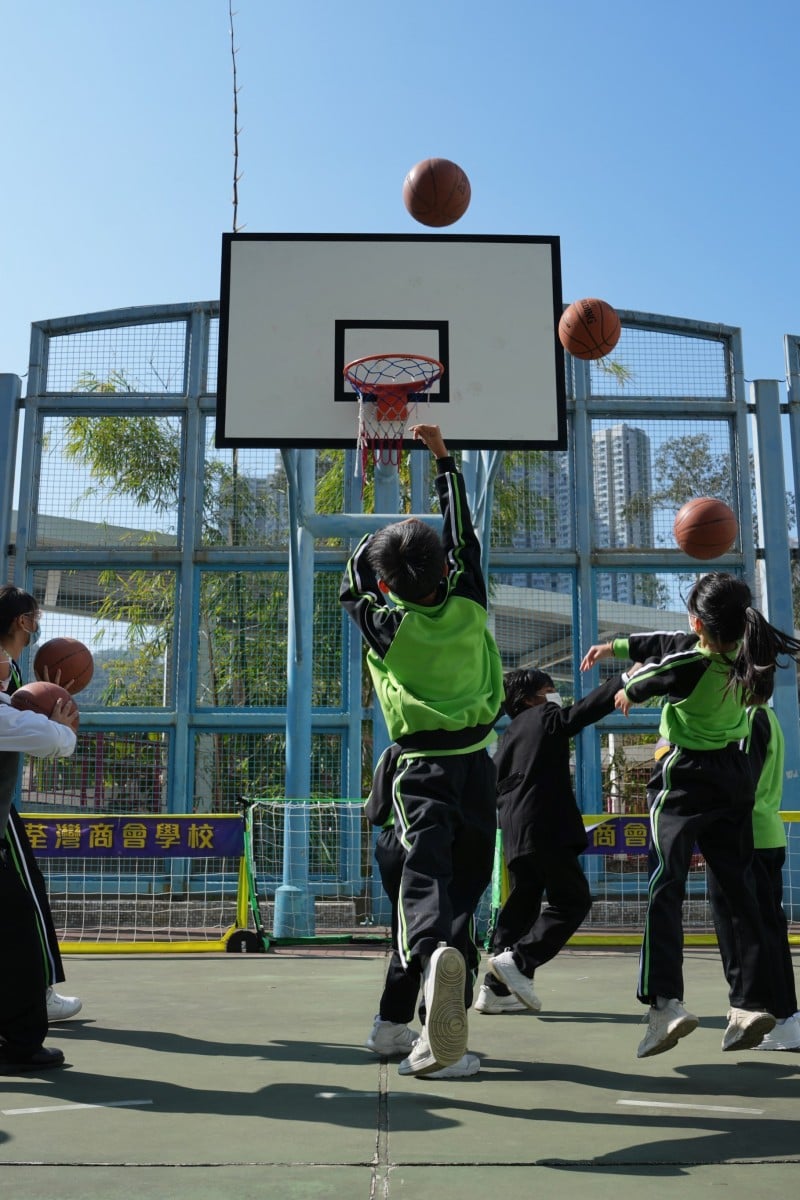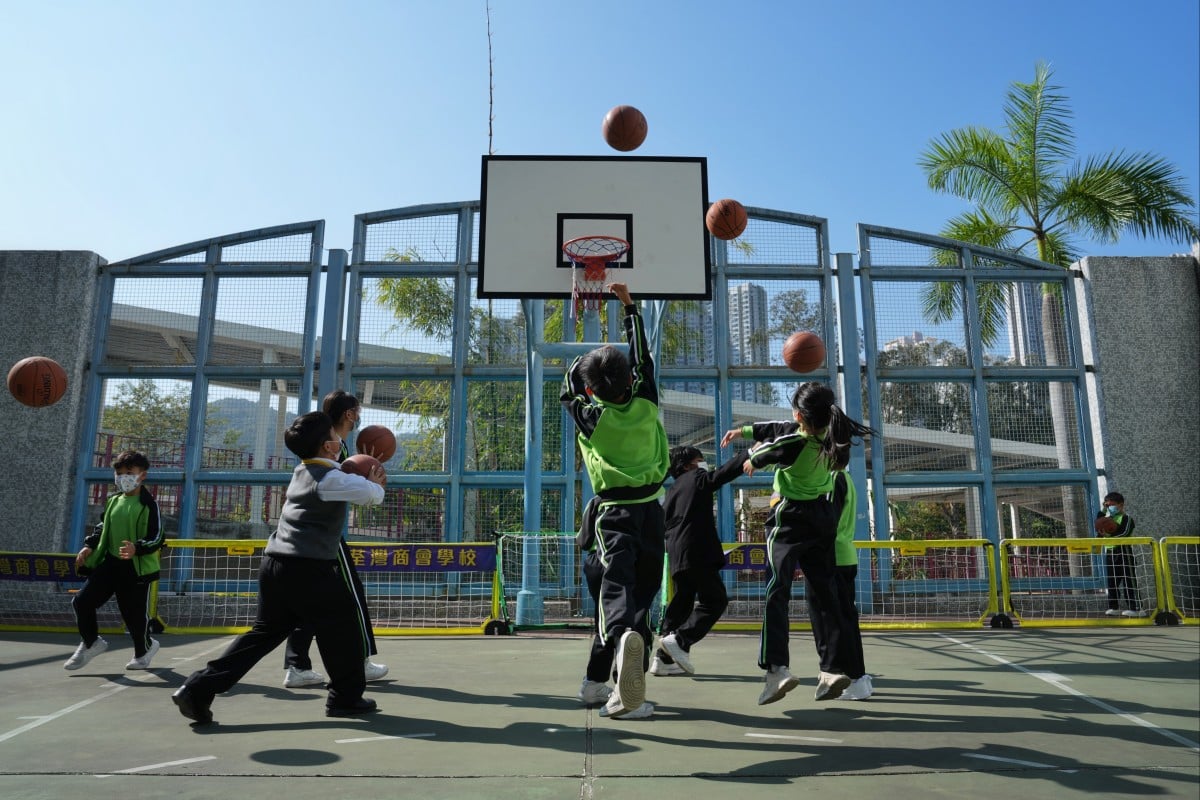
Exercise helps body and mind – how can Hong Kong children be encouraged to get moving?
University of Hong Kong study has found more than 90 per cent of the city’s youth don’t get at least 60 minutes of daily physical activity.
 The World Health Organization says children should aim for at least 60 minutes of exercise every day. Photo: Elson Li
The World Health Organization says children should aim for at least 60 minutes of exercise every day. Photo: Elson LiLately, Andy Lee has found it easier to sleep and focus on his studies. What is his secret? Since last October, he has been prioritising daily exercise.
Every day, the 16-year-old runs for 30 to 45 minutes and plays basketball at his school, Hong Kong International School. He has experienced the benefits of an active lifestyle – for his health and his grades.
“I feel like my grades ... improved after exercising every day,” he said.
However, Andy’s habits are unusual for kids his age in Hong Kong. Most of the city’s children do not get the recommended amount of daily exercise.
Why students are not moving
A study from the University of Hong Kong (HKU) found more than 90 per cent of the city’s children do not get at least 60 minutes of daily exercise. This is the minimum amount recommended by the World Health Organization.
According to HKU’s researchers, this number is because parents prioritise their children’s academics over physical activity.
Andy felt that the competitive school environment was another reason for this. “A lot of local schools ... are really competitive when it comes to academics and study, and you don’t have as much time to work out,” he said.
Ashleigh Martin is a certified personal trainer and coach for young athlete development. She was not surprised to hear this statistic, but found that 90 per cent was “incredibly high”.
“A lot of youths don’t involve themselves in physical activities because of a general expectation to ... perform at a high level in academics,” she said.
The best no-equipment home workout for beginners
How physical activity can help
Andy made an active change in his routine after he read about what happens in the brain when we exercise.
“It talked about how physical activity and exercise actually helps improve ... the brain’s productivity, and it also helps with procrastination and time management,” the teen said.
“When I read that, I was just self-reflecting about how that could be true. That same day, I decided to go on a run.”
Since he started getting more active, Andy said he felt more energetic and could fall asleep more easily.
Martin also noted the benefits of exercise for the body and mind.
“Exercise can help manage growing pains, strengthen and stabilise joints to prevent injuries, as well as help adolescents regulate sleep,” she said.
Martin said physical activities could also be a way for teens to learn leadership skills, such as resilience and focus.
How to get more exercise
Andy’s advice for other young Hongkongers looking to be more active was to “just get started”.
“A lot of people push things back, and they’ll say they’ll do it later or they don’t want to do it. I think the only cheat code is to ... start,” he said.
Martin suggested doing activities with friends and family to make it a bonding experience. You could try joining a charity dog walk or going around your neighbourhood.
To bring exercise into your daily routine, you could also turn everyday moments into active games.
“See how many steps you can skip and ... focus on how many you can complete with good posture,” Martin said.
“If you have a lift in your building, see if you can beat your family or friends by taking the stairs.”
-
Reflect: How much exercise do you get every day?
-
Why this story matters: Exercise is important in helping kids to grow up in a healthy way. It affects how think think, sleep and feel. Parents and schools should make sure children are not spending all their time doing work or in front of a screen.
minimum 最低限度
the smallest that is possible or allowed
prioritising 優先考慮
to treat something as being more important than other things
regulate 規管
to control a process so that it works how it should
resilience 復原力
the ability to adapt and recover from hardships
routine 日常習慣
the normal way that you usually do things
stabilise 穩定
to make something steady and unlikely to change
statistic 統計數據
information shown in numbers
Build your vocabulary skills
What is now part of Andy’s daily routine?
